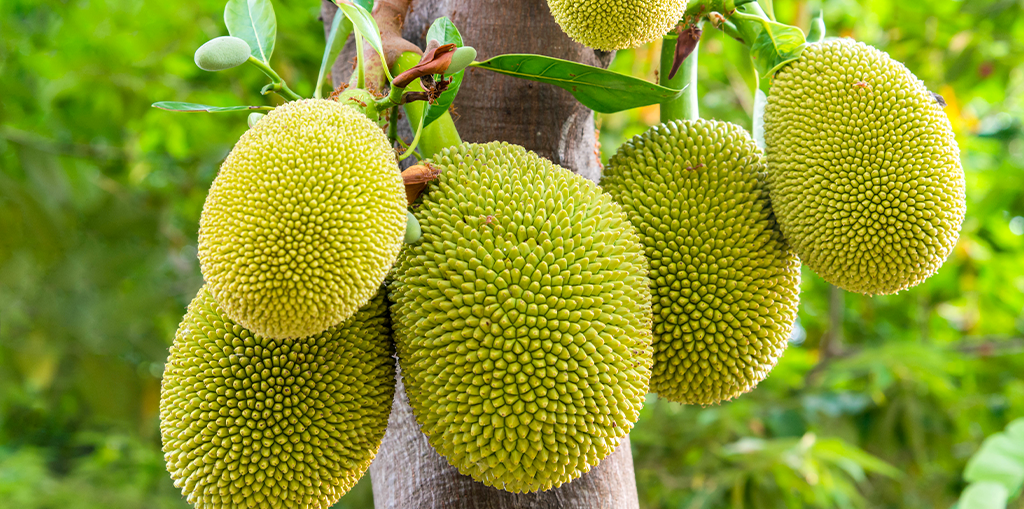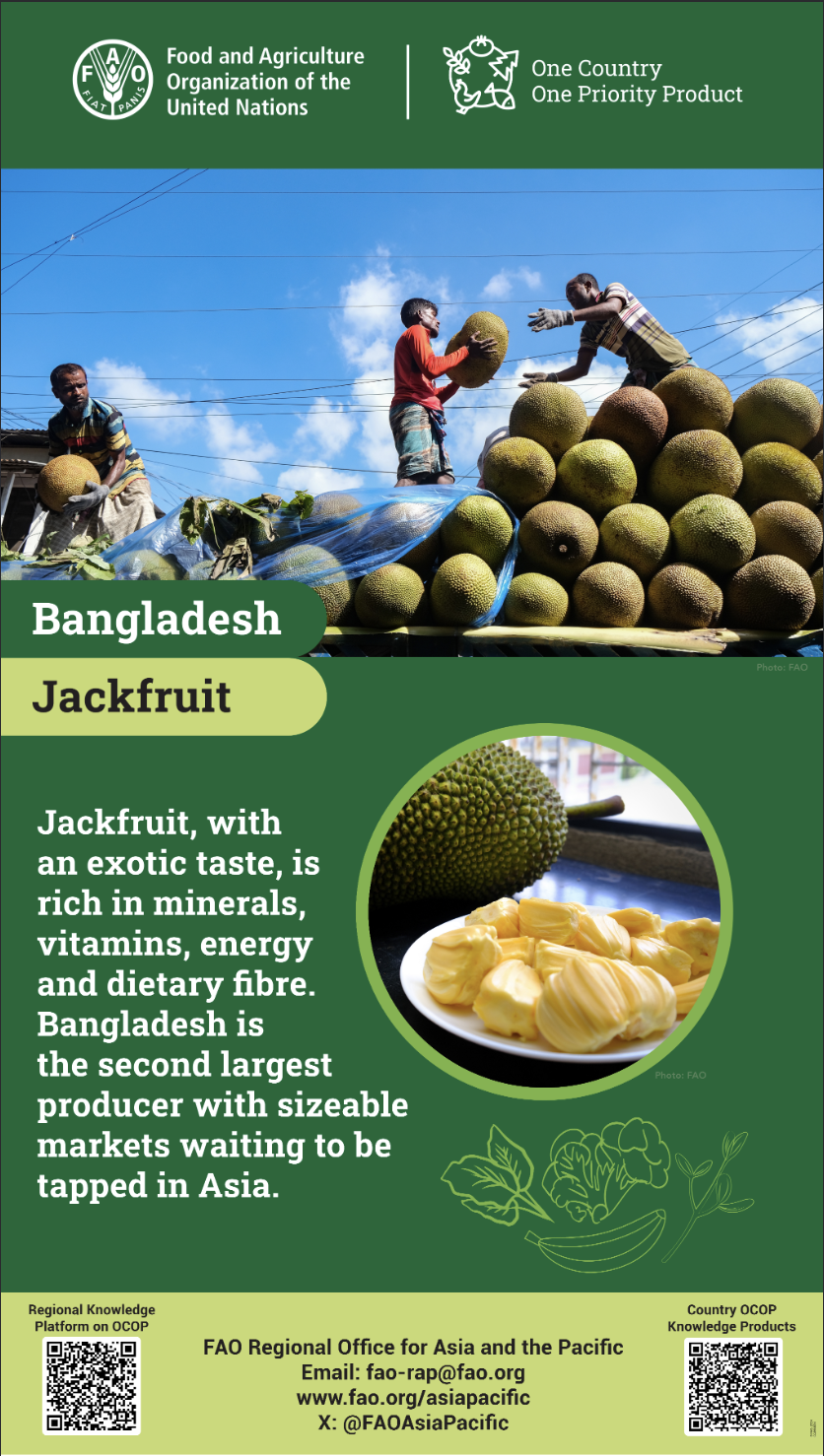 Bangladesh
Bangladesh

OCOP in RAP - Bangladesh
One Country One Priority Product (OCOP)
Jackfruit
OCOP: Jackfruit
Character and comparative advantage: Jackfruit has very wide agro-ecological adaptability. Almost every family in the rural areas of Bangladesh has a homegrown garden where at least several jackfruit trees exist. The trees are also common along streets, on the campuses of school, college, university and other institutions etc. Moreover, if the farming households in Bangladesh have any area to grow some fruit trees, they tend to grow jackfruit trees. Jackfruit trees are generally easier and cheaper to cultivate than other popular fruits because they rarely need nurturing. It is almost a disease resistant tree. Other than the fruits, all other parts of jackfruit tree are also very valuable. The tree also produces profuse leaves which are very palatable animal feed. The bark of the tree can be used as a dye while the sticky latex produced by the tree can be used as glue/ sealing material. The wood from the tree can be used in furniture work and to produce musical instruments, as the wood is termite-proof and fairly resistant to fungal and bacterial decay.
Producing areas: Jackfruit is grown in almost everywhere the country. There is no district in the country that does not produce jackfruit. However, some of the leading jackfruit growing districts are: Gazipur, Tangail, Mymensingh, Kushtia, Rangamati, Khagrachari and Narsingdi.
Demands: Jackfruit is among the top class fruits with the highest nutrition level and rich in exotic taste. It significantly contributes to the nutrition of the rural as well as urban people of Bangladesh as a source of dietary fibers, vitamins, minerals and calories. Seeds of jackfruits are also a good source of carbohydrates and potassium with considerable amount of phosphorus and calcium and protein. There is an enormous potential of jackfruit processed foods like canned fruits, vegetables, chips in the international market.
Consumption: The flesh ripen of jackfruits is consumed as fresh. The seeds are roasted and consumed as snacks and/ or smashed dish with rice. Though not very common, the pulp of unripe fruits is used as a vegetable.
Beneficiaries: Increased jackfruit cultivation will not only enhance forest cover and more efficient land use, it will also serve as source of extra income for the rural poor household and a way of empowering women. Jackfruit processing and value addition will ensure maximum benefit to the local growers, which will eventually improve food and nutrition security and help alleviate rural poverty. In addition, as the second largest jackfruit producer in the world, Bangladesh can certainly occupy a substantial share in the international market for a variety of jackfruit processed products having demand internationally.

Contact
Dr. Mussammat Shamsunnahar
Director, Horticulture Research Centre, BARI, Gazipur
[email protected]
01674876252
